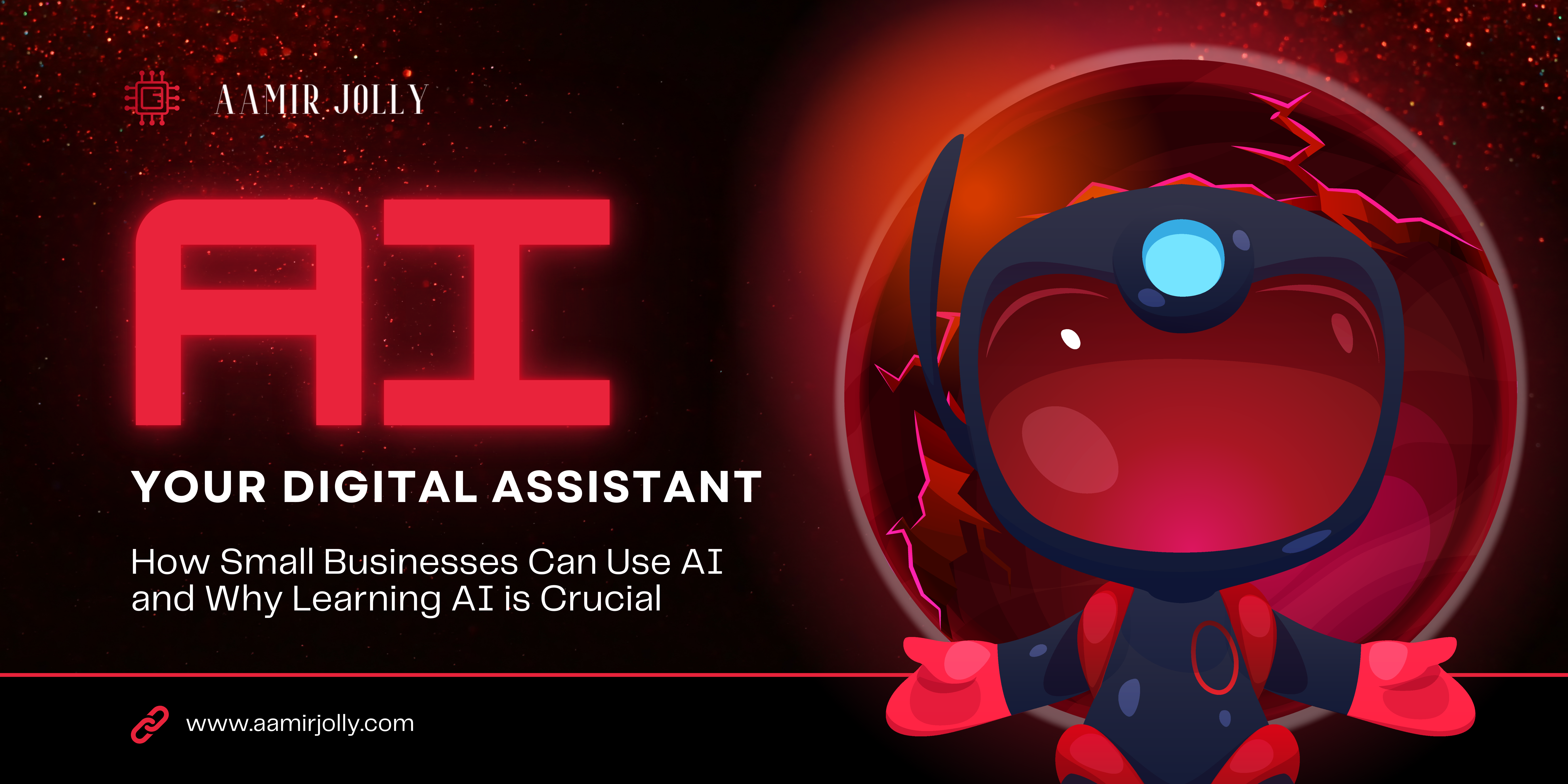How Small Businesses Can Use AI and Why Learning AI is Crucial
Artificial Intelligence (AI) is no longer just for large corporations with deep pockets. Today, small businesses can harness AI to streamline operations, improve customer experiences, and drive growth. The rise of accessible AI tools means that businesses of all sizes can now leverage this technology to remain competitive in an increasingly digital world.
How Small Businesses Can Use AI
-
Automating Customer Service
AI-powered chatbots and virtual assistants can handle customer inquiries, provide quick responses, and even resolve common issues without human intervention. This enhances customer experience while reducing the workload on support teams. -
Improving Marketing Efforts
AI tools analyze customer behavior, predict trends, and personalize marketing campaigns. Small businesses can use AI-driven platforms to automate email marketing, social media scheduling, and ad targeting, ensuring more effective engagement with their audience. -
Enhancing Sales and Lead Generation
AI can help businesses identify potential customers, score leads, and even recommend products based on user preferences. AI-driven CRM (Customer Relationship Management) systems improve sales strategies by providing valuable insights into customer interactions. -
Optimizing Operations and Inventory Management
AI-powered inventory management systems track stock levels, predict demand, and automate restocking processes. This prevents overstocking or running out of essential products, ultimately saving time and money. -
Financial Management and Fraud Detection
AI tools help with bookkeeping, expense tracking, and financial forecasting. Machine learning algorithms can also detect unusual patterns in transactions, reducing the risk of fraud and ensuring financial security. -
Enhancing Hiring and HR Management
AI streamlines recruitment by scanning resumes, assessing candidates, and automating interview scheduling. AI-powered HR tools can also track employee performance and provide recommendations for productivity improvement.
Why Learning AI is Crucial for Small Business Owners
-
Staying Competitive
Businesses that fail to adapt to AI risk falling behind competitors who leverage automation and data-driven insights. Learning AI ensures that small business owners remain ahead of industry trends. -
Cost Savings and Efficiency
Understanding AI enables small businesses to cut costs by automating repetitive tasks, reducing labor expenses, and optimizing business operations. -
Better Decision-Making
AI provides real-time data analytics, allowing businesses to make informed decisions based on facts rather than assumptions. -
Improved Customer Experience
AI helps businesses understand customer needs better, personalize interactions, and enhance overall satisfaction, leading to increased loyalty and sales. -
Future-Proofing the Business
AI adoption is rapidly increasing across all industries. Learning AI ensures that businesses remain adaptable and ready for technological advancements.
How to Get Started with AI
-
Explore AI Tools: Platforms like ChatGPT, Google Bard, and AI-powered CRM software are great starting points.
-
Take Online Courses: Websites like Coursera, Udemy, and LinkedIn Learning offer AI courses tailored for small businesses.
-
Leverage AI-Powered Apps: Many software solutions integrate AI for marketing, finance, and customer service.
-
Join AI Communities: Engaging with AI-focused forums and business groups can provide valuable insights and networking opportunities.
Conclusion
AI is transforming the way small businesses operate, offering efficiency, cost savings, and better customer engagement. Learning and adopting AI is no longer an option but a necessity for small business owners looking to thrive in today’s digital economy. By embracing AI, small businesses can unlock new opportunities, streamline processes, and future-proof their growth in an increasingly AI-driven world.
FAQs
Have a query? Please check this question and answers
Not necessarily. Many AI tools are cost-effective and scalable, allowing small businesses to start with free or affordable plans before upgrading as needed. Cloud-based AI solutions also reduce the need for expensive hardware and infrastructure.
No, many AI platforms are designed with user-friendly interfaces and require little to no coding knowledge. Small business owners can use AI-powered tools like chatbots, CRM systems, and marketing automation software with minimal training.
The main risks include data privacy concerns, reliance on third-party AI tools, and potential job displacement. However, these risks can be mitigated by using trusted AI providers, ensuring compliance with data protection regulations, and integrating AI in ways that enhance rather than replace human roles.

